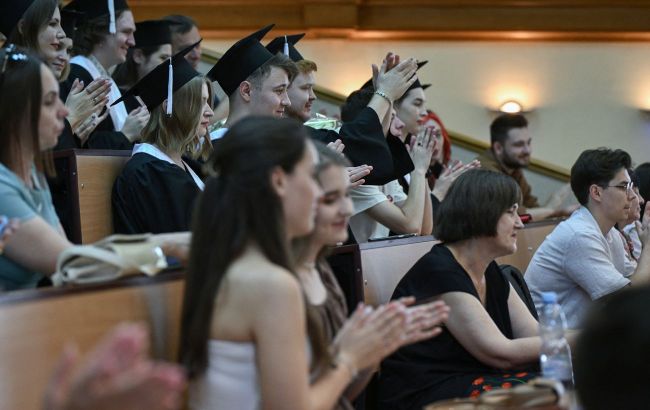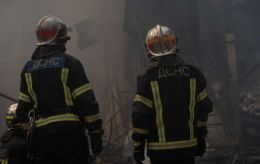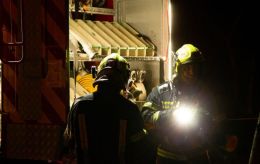Russian teachers intimidate children with Ukrainian universities in occupied territories
 Russian teachers intimidate children with Ukrainian universities in occupied territories (Illustrative photo: Getty Images)
Russian teachers intimidate children with Ukrainian universities in occupied territories (Illustrative photo: Getty Images)
In the Russian-occupied territories of Zaporizhzhia, schoolchildren are being frightened with myths about Ukrainian universities as part of an absurd propaganda campaign aimed at keeping young people in areas outside Ukrainian control, according to the Center for Countering Disinformation.
In the temporarily occupied territories of the Zaporizhzhia region, Russian teachers, as part of a series called “Conversations About Important Things,” tell high school students outlandish stories about supposedly terrifying Ukrainian universities.
According to activists from the resistance movement Yellow Ribbon, children are being told that Ukrainian universities teach hatred of Russians, force students to renounce their faith, and even promote drugs and debauchery.
False fears and pressure on graduates
Schoolchildren are being frightened with claims that Ukrainian diplomas are supposedly not recognized worldwide, and that students with low grades are sent to the front lines.
Propagandists aim to create the impression among children that studying outside the occupied territories is dangerous and pointless, fostering pressure and fear about the possibility of leaving the area.
Youth response
Despite the efforts of the Russian propaganda machine, schoolchildren are seeking ways to enroll in Ukrainian universities and leave the occupied areas.
The goal of the campaign is clear: through lies and intimidation, authorities aim to keep young people in territories outside Ukrainian control, limiting their educational and life opportunities.
In the occupied territories of the Donetsk and Luhansk regions, unemployment has reached record levels, three times higher than in 1992, with most residents forced to work not for money but for food packages. Currently, only about 30% of the population is employed.
Looking ahead, the winter of 2025 is expected to be a critical phase of the conflict, with international support for Ukraine increasing. European countries are considering expanding assistance to strengthen the country’s defense capabilities and ensure energy system stability in anticipation of further Russian strikes.

